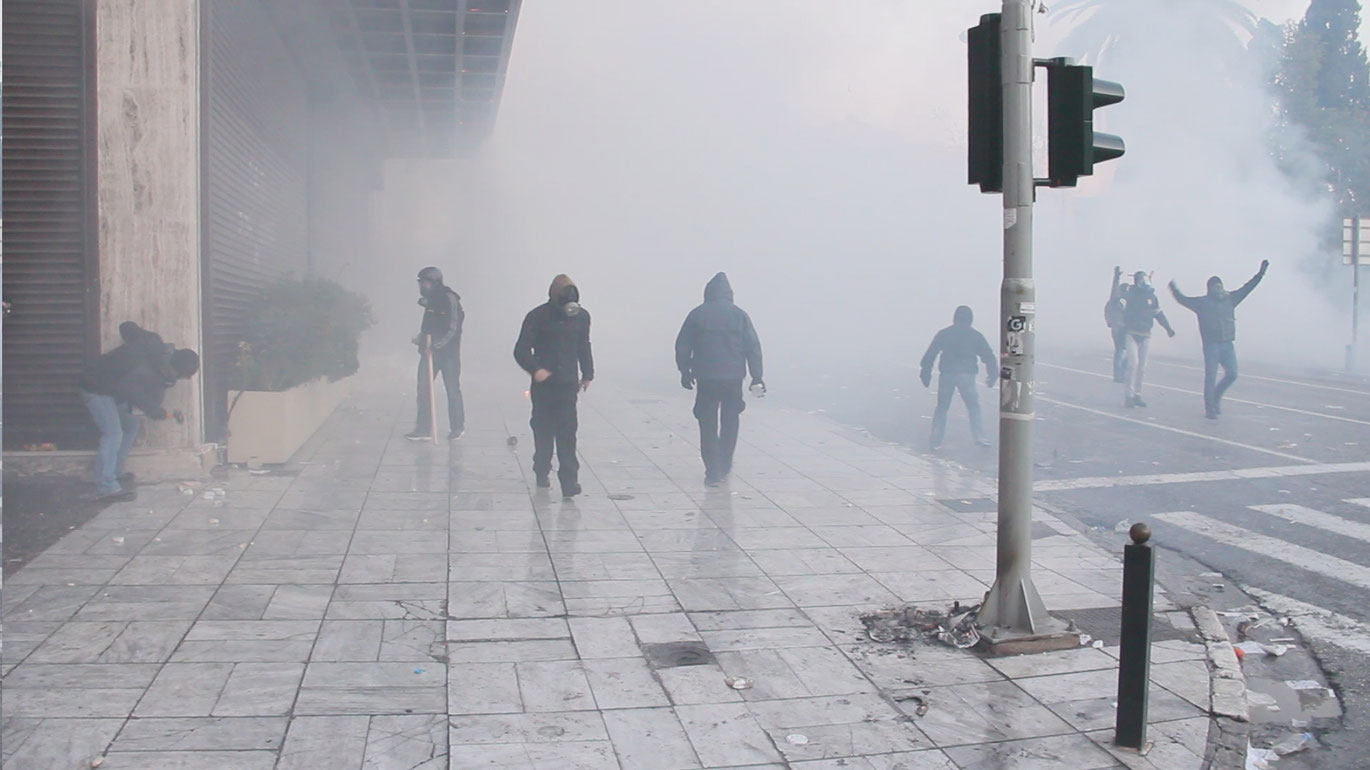I can't cry much louder than this
The title is programmatic – as a red herring. This is not a "film like an outcry", but a texture of motifs not heard, subjectivity expressed in a witty language-game. It deals with/consists of "raw" BBC news images of recent uprisings and disasters, with a commentary in subtitle-like inserts. This ego, this auctorial I, is to be read, not heard, as it reasons and resonates.
Chapter 1 is called I see things differently. It shows street protests, police violence, tear gas: Athens, Arab rebellions, London riots. "I can only speak for myself", the differently-seeing I says without speaking. I hear things differently: chapter 2 opens with ear-splitting gunfire in Lybia, but the I traces the hearing-differently back to Led Zeppelin: a ringing in the ear remains from a 1980 concert. We hear it in the film while the image flow takes us from tinnitus to tsunami (Japan 2011). Cars and boats are carried away. What is their destination? Perhaps the Aral Sea, now a desert with rusty shipwrecks in it. Before, to the sound of rock band Thalija, the film ends there on a biblical note (from anarchy to Ark), it detours into the mundane.
Entitled I have no voice, chapter 3 deals with dubbing, has Obama joking in a dubbed voice and lists all the stars lip-synced by a busy German dubbing actor. Another detour toys with closing (camera-)eyes as they look at images of protests: If I close the right eye, the image has a red hue; if I close the left eye, a green hue. Subjectivity translates into physics, politics, puns: One red image, one green – is that a 3D technology? a color-code? The left eye will see the red flags of Greek protests, the right one will see the Islamic green of Arabellion.
The hue refers to a color-tone as well as to hue and cry. So we return to the voiceless claim of the film´s title: Crying is shouting out, but also a mute speech of eyes (especially eyes that see differently or feel like crying over how rebellion leads to theocracy). Crying is also what eyes do when hit by teargas – or squeezed shut for too long. This results in a hue from the eye, from the I to you.
(Drehli Robnik)
Robert Cambrinus' shout is a silent one: by means of captions he muses on the (in-)aptitude of one´s own perception. Private issues blend with public ones. Underlying it all is a media barrage: random depictions of protest and catastrophes. image and text cast only an indirect light on one another. The association drawn are inevitably personal.
(Diagonale Catalog 2013)
I can't cry much louder than this
2012
Austria
11 min 23 sec
Essay, Avantgarde/Arts
English
german version

